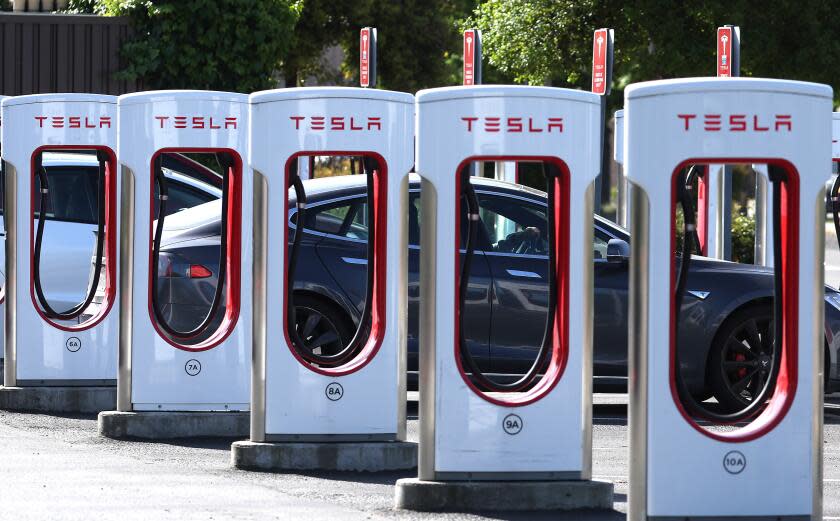California is offering drivers $400 gift cards to test its alternative to the gas tax

California officials are still trying to figure out how to pay for road repairs and maintenance in the not-so-distant future, when electric vehicles dominate the roadways and gas tax revenue dries up.
So they're offering drivers up to $400 to test a couple of alternatives for six months, starting in August. The pilot program is open to drivers of all vehicle types, gasoline-powered or otherwise.
Road improvements are financed mainly through the state's comparatively high excise tax on fuels (about 58 cents a gallon for gasoline and 44 cents a gallon for diesel). Approximately 80% of highway and road repairs are funded by the state gas tax, according to the California Department of Transportation.
But that important revenue stream is expected to nosedive in the coming years as the transition to more electric and hybrid vehicles quickens, especially with a ban on the sale of new gas-powered vehicles set to take effect in 2035.
So state transportation officials are looking for drivers to participate in what will likely be the final test on a new system aimed at replacing the gas tax with a more reliable funding source based on the number of miles you drive, not how many gallons your car guzzles.
Read more: Can California pull off the epic transition to EVs? Read our coverage here
“What’s happening right now as we see this growth in different types of vehicles ... we're seeing this increasing unfairness in what people are paying,” said Lauren Prehoda, manager of CalTrans' Road Charge Program. While owners of electric vehicles pay a yearly fee to help pay for road repairs, it's about a third of the roughly $300 that Californians pay on average through the gas tax, according to the program.
Prehoda said the latest pilot program — the fourth focused on this issue — will test two payment models: a flat per-mile rate or an individualized rate based on a vehicle's fuel efficiency.
“This time it's unique because in the past we haven’t actually collected money," Prehoda said. She said they are focused on testing the collection process, but will be looking to ensure the process is easy for drivers, reliable for the state and equitable for all Californians.
Prehoda expects this will be the final test of the process before policymakers determine how it will be implemented.
Read more: Owners of electric cars get a break on the gas tax. It's costing California $32 million
“As a state we’ve been looking at this for 10 years now," she said. The first pilot program kicked off in 2016, when transportation officials tested the feasibility of such a new revenue stream, looking into a variety of ways for drivers to report mileage. Officials have since looked at how such a new tax could disproportionately affect rural and tribal communities and how private and public roads are used.
The latest study is looking for about 800 participants statewide who will begin paying the mileage-based travel fee every month, but also receive a credit for the gas taxes or EV registration fees they paid to ensure they aren't double-taxed. Participants can also earn up to $400 in gift cards. Interested Californians can sign up online.
“This is your opportunity to figure this out together with us; to solve an issue that the state of California has," Prehoda said, adding that the failure to maintain roads causes costly wear and tear on the vehicles using them. "We all need good roads to get around."
This story originally appeared in Los Angeles Times.

